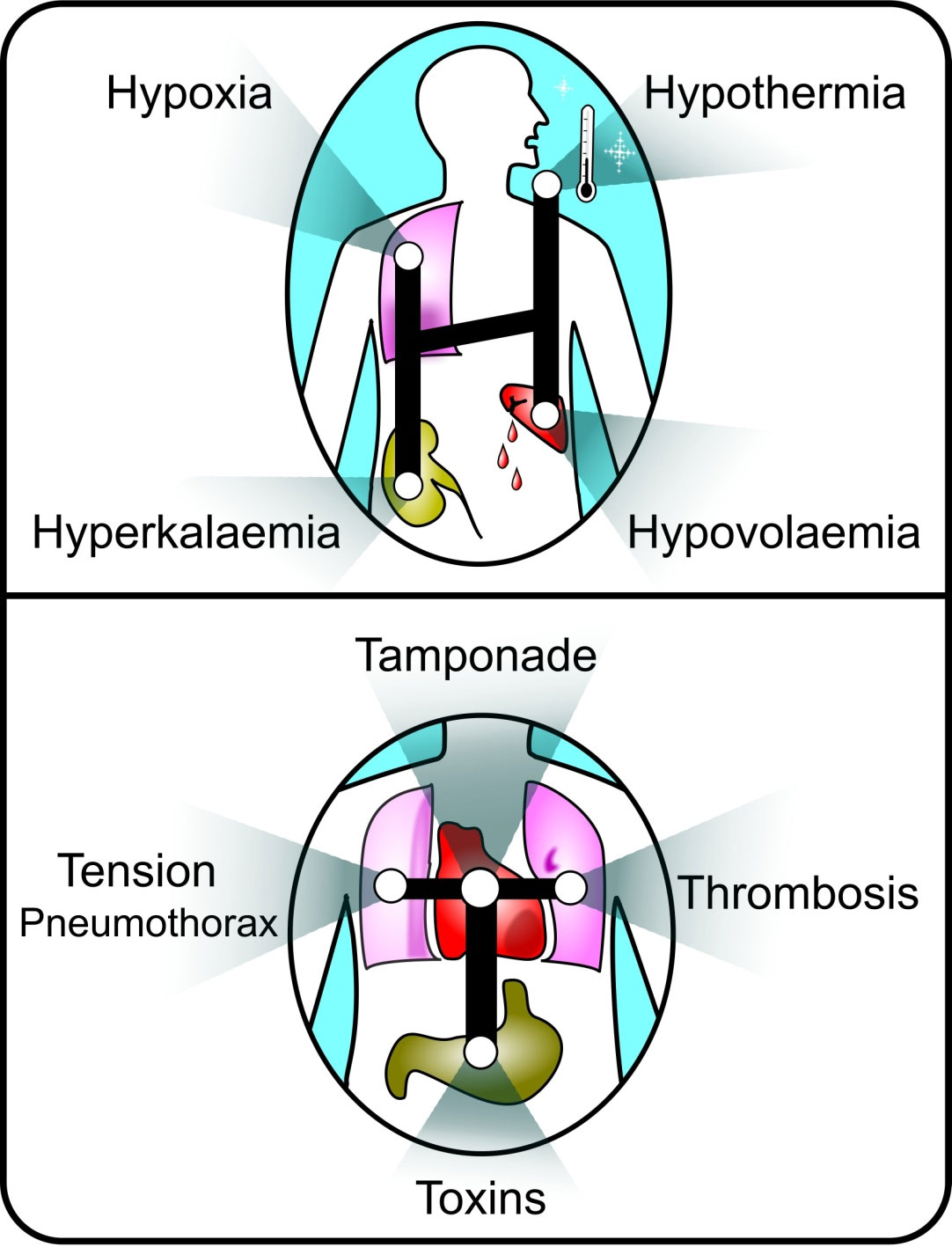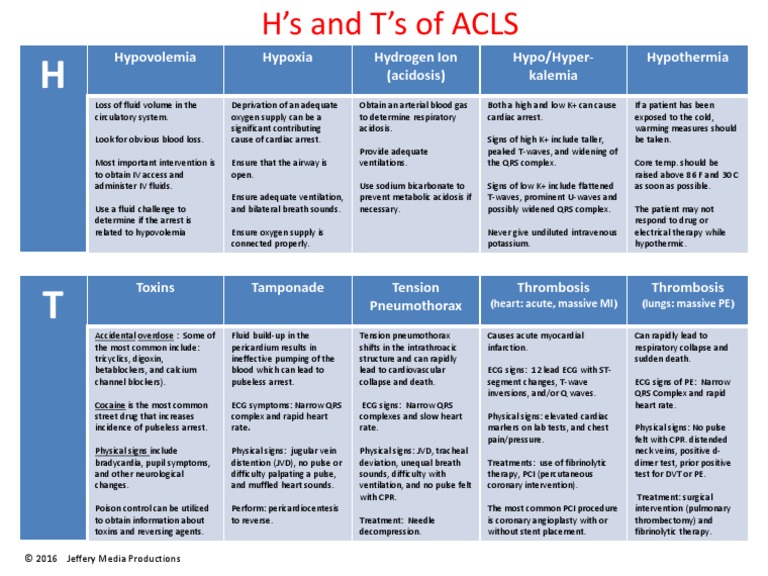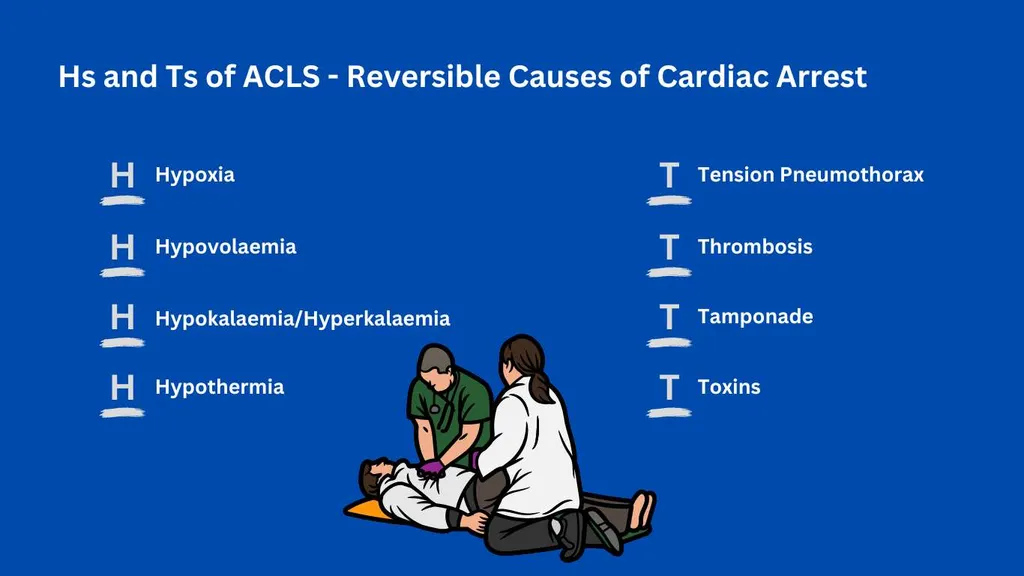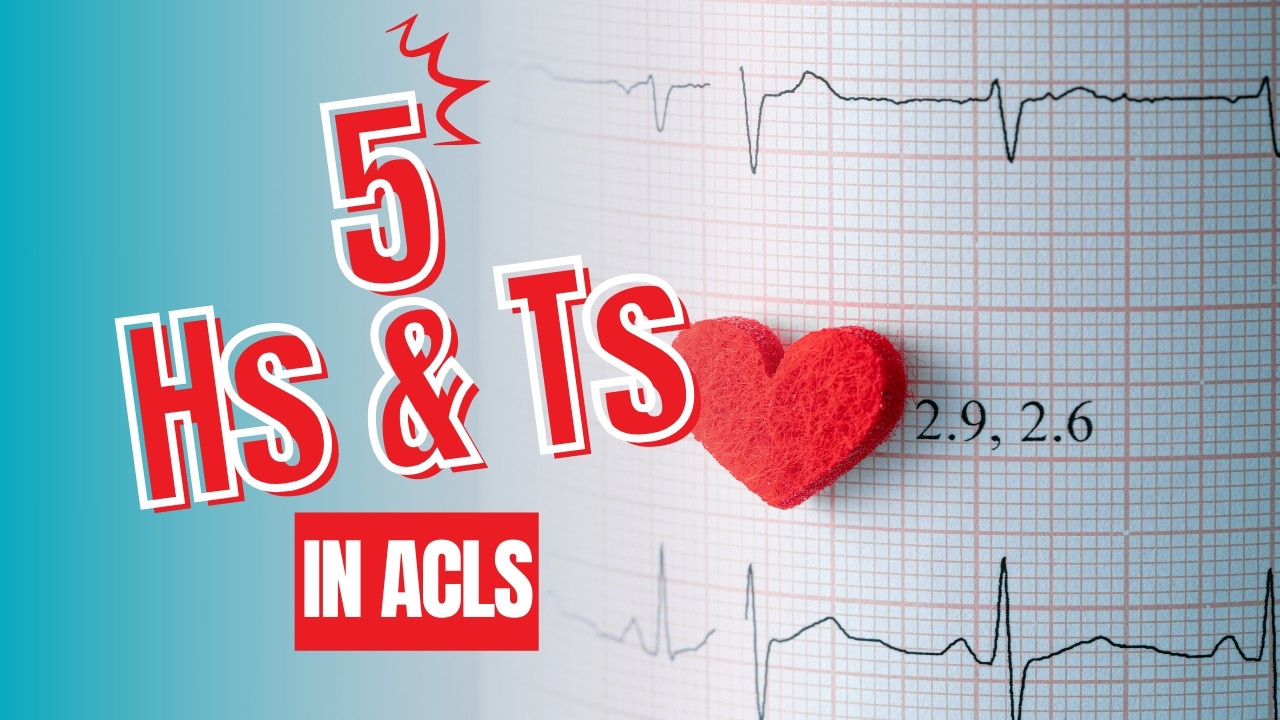H And T Of Cardiac Arrest - What are the h's and t's of acls? The h's and t's is a mnemonic device which will help you to recall the factors that contribute to pulseless. Learn the key steps in managing cardiac arrest. The h’s and t’s of acls is a mnemonic used to help recall the. During any cardiac arrest, part of the resuscitation effort must focus on identifying and treating potentially reversible causes — the conditions. Understand hs and ts acls algorithm for effective emergency response. Knowing the h’s and t’s of acls will help prepare you for any acls scenario.
Knowing the h’s and t’s of acls will help prepare you for any acls scenario. During any cardiac arrest, part of the resuscitation effort must focus on identifying and treating potentially reversible causes — the conditions. Learn the key steps in managing cardiac arrest. What are the h's and t's of acls? Understand hs and ts acls algorithm for effective emergency response. The h's and t's is a mnemonic device which will help you to recall the factors that contribute to pulseless. The h’s and t’s of acls is a mnemonic used to help recall the.
Understand hs and ts acls algorithm for effective emergency response. The h's and t's is a mnemonic device which will help you to recall the factors that contribute to pulseless. Knowing the h’s and t’s of acls will help prepare you for any acls scenario. What are the h's and t's of acls? Learn the key steps in managing cardiac arrest. During any cardiac arrest, part of the resuscitation effort must focus on identifying and treating potentially reversible causes — the conditions. The h’s and t’s of acls is a mnemonic used to help recall the.
Many cardiac arrest conditions are reversible, determining and treating
The h's and t's is a mnemonic device which will help you to recall the factors that contribute to pulseless. The h’s and t’s of acls is a mnemonic used to help recall the. Learn the key steps in managing cardiac arrest. During any cardiac arrest, part of the resuscitation effort must focus on identifying and treating potentially reversible causes.
Resuscitation Council (UK) Advanced Life Support Cardiac Arrest
Understand hs and ts acls algorithm for effective emergency response. The h's and t's is a mnemonic device which will help you to recall the factors that contribute to pulseless. Learn the key steps in managing cardiac arrest. What are the h's and t's of acls? The h’s and t’s of acls is a mnemonic used to help recall the.
H’s and T’s of ACLS Percutaneous Coronary Intervention Heart
Knowing the h’s and t’s of acls will help prepare you for any acls scenario. During any cardiac arrest, part of the resuscitation effort must focus on identifying and treating potentially reversible causes — the conditions. What are the h's and t's of acls? Learn the key steps in managing cardiac arrest. The h's and t's is a mnemonic device.
Hs and Ts 8 Reversible Causes of Cardiac Arrest Heart Start CPR
Learn the key steps in managing cardiac arrest. During any cardiac arrest, part of the resuscitation effort must focus on identifying and treating potentially reversible causes — the conditions. The h's and t's is a mnemonic device which will help you to recall the factors that contribute to pulseless. Understand hs and ts acls algorithm for effective emergency response. What.
Cardiac Arrest
The h’s and t’s of acls is a mnemonic used to help recall the. During any cardiac arrest, part of the resuscitation effort must focus on identifying and treating potentially reversible causes — the conditions. What are the h's and t's of acls? Understand hs and ts acls algorithm for effective emergency response. The h's and t's is a mnemonic.
Many cardiac arrest conditions are reversible, determining and treating
What are the h's and t's of acls? The h’s and t’s of acls is a mnemonic used to help recall the. The h's and t's is a mnemonic device which will help you to recall the factors that contribute to pulseless. Understand hs and ts acls algorithm for effective emergency response. Learn the key steps in managing cardiac arrest.
Knowing the H’s and T’s of ACLS will help prepare you for any ACLS
The h's and t's is a mnemonic device which will help you to recall the factors that contribute to pulseless. During any cardiac arrest, part of the resuscitation effort must focus on identifying and treating potentially reversible causes — the conditions. The h’s and t’s of acls is a mnemonic used to help recall the. Learn the key steps in.
cardiac common causes arrest most use the and hs ts ofUse
The h's and t's is a mnemonic device which will help you to recall the factors that contribute to pulseless. Knowing the h’s and t’s of acls will help prepare you for any acls scenario. The h’s and t’s of acls is a mnemonic used to help recall the. Learn the key steps in managing cardiac arrest. During any cardiac.
Crucial Factors in Cardiac Emergencies Hs and Ts of Sudden Cardiac
Understand hs and ts acls algorithm for effective emergency response. What are the h's and t's of acls? The h’s and t’s of acls is a mnemonic used to help recall the. Knowing the h’s and t’s of acls will help prepare you for any acls scenario. Learn the key steps in managing cardiac arrest.
Hs and Ts of cardiac arrest YouTube
What are the h's and t's of acls? The h's and t's is a mnemonic device which will help you to recall the factors that contribute to pulseless. During any cardiac arrest, part of the resuscitation effort must focus on identifying and treating potentially reversible causes — the conditions. Understand hs and ts acls algorithm for effective emergency response. Learn.
The H's And T's Is A Mnemonic Device Which Will Help You To Recall The Factors That Contribute To Pulseless.
During any cardiac arrest, part of the resuscitation effort must focus on identifying and treating potentially reversible causes — the conditions. The h’s and t’s of acls is a mnemonic used to help recall the. Understand hs and ts acls algorithm for effective emergency response. Knowing the h’s and t’s of acls will help prepare you for any acls scenario.
Learn The Key Steps In Managing Cardiac Arrest.
What are the h's and t's of acls?









